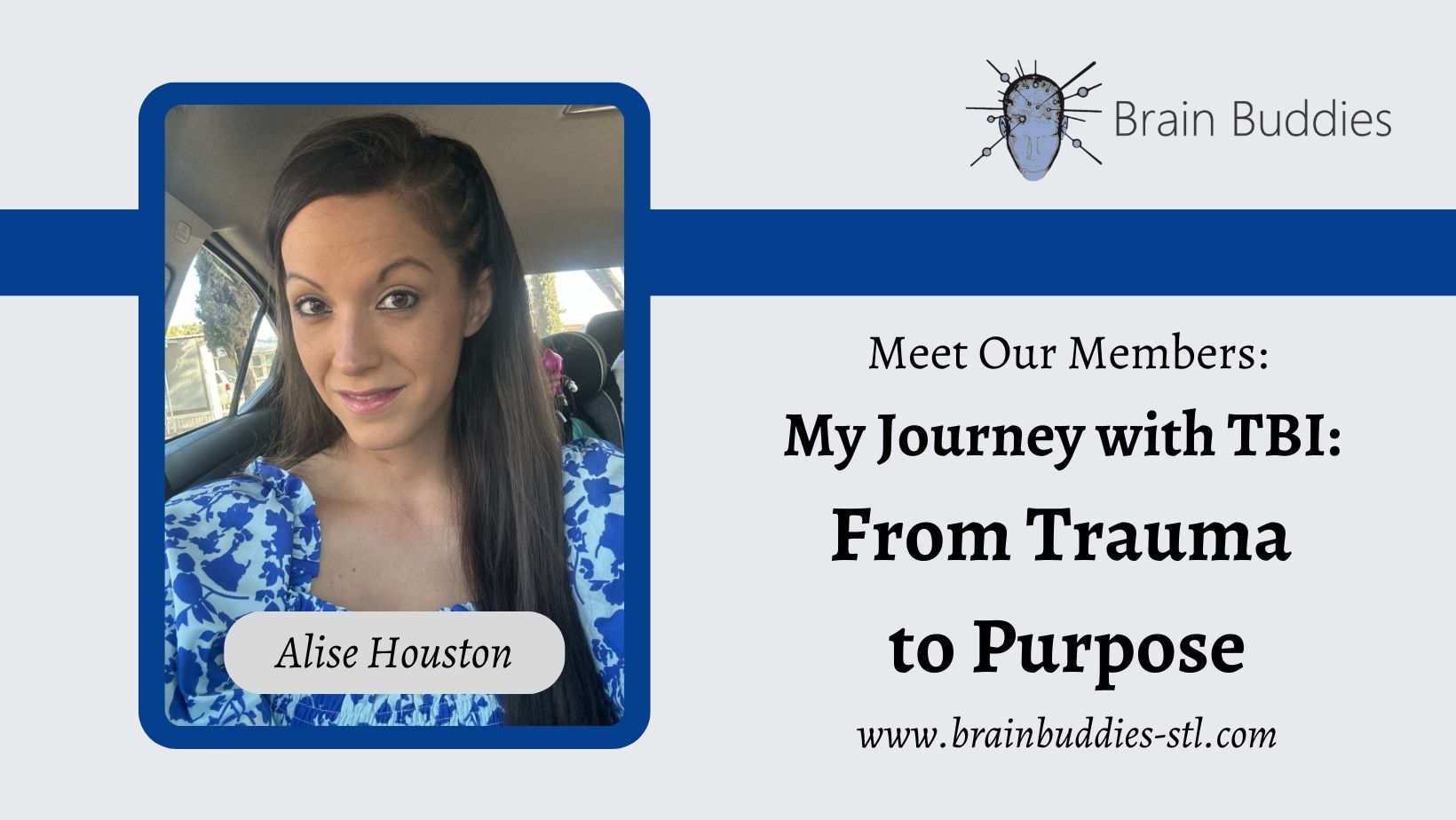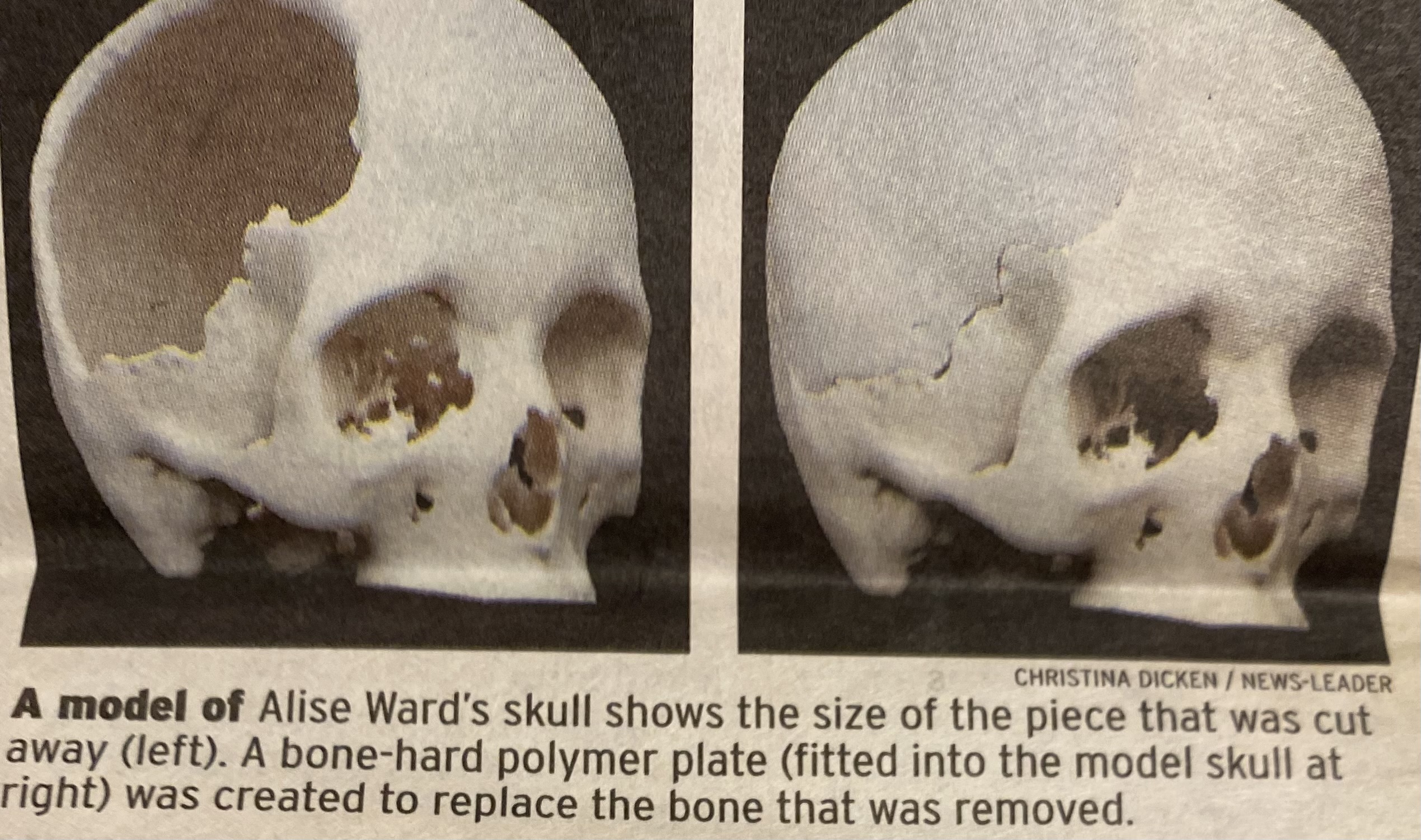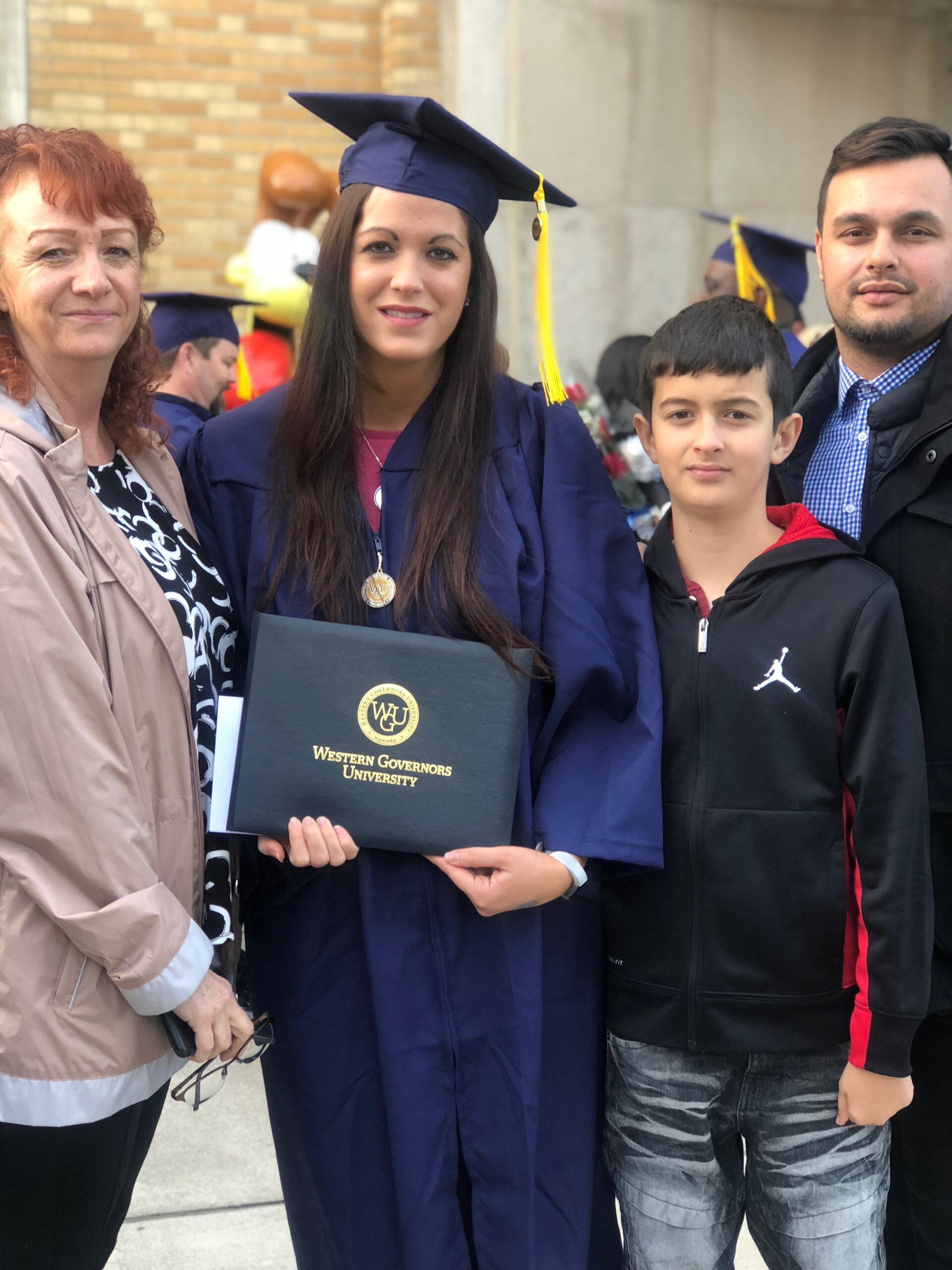
I was riding in the passenger seat with two of my best friends, headed out for a fun Friday night of playing pool. On the way to one of their houses, we passed a hay truck. In a split second, my friend overcorrected, and the car flipped—six times. On my side, we hit an 8-inch metal pole. The impact fractured my skull in five places and broke my neck. I was rushed to the hospital by ambulance and immediately taken into surgery.
I had a blood clot in my head the size of a man’s fist, along with another the size of a quarter. The surgeon used a new technique designed specifically for children, aimed at giving me the best possible outcome. Still, my intracranial pressure kept rising. Because of the extensive damage, they removed half of my skull, which was replaced months later with an artificial one.


Eventually, that job brought me to someone special—my husband, Mook. We dated for several years before getting married. During that time, I went back to school to become a special education teacher and earned my degree at age 30! A couple of years later, we welcomed our youngest son, and I began a new chapter working as a program manager for individuals with developmental disabilities.
Along the way, I found Brain Buddies.
I first heard about the group from Megan, an original member, while attending a Brain Injury Alliance support group. I decided to go to an event and immediately felt connected. What I love most about Brain Buddies is the people—getting to know everyone and hearing their stories. There’s something incredibly powerful about sharing your struggles with others who truly understand because they’ve lived it too.
I also appreciate that Brain Buddies is family-friendly. I can bring my kids to events and let them see that other people have brain injuries too. It’s helped them better understand me, and it’s given them a window into a community that’s often misunderstood.
That’s why I believe TBI awareness is so important. Brain injuries aren’t always visible. Many people walk through life with what I call an “invisible injury,” and it’s crucial that we create awareness and compassion around that. The more people understand TBI, the better equipped they’ll be to support those of us who live with it—and the more likely they’ll be to take head injuries seriously from the start and get the care they need.
TBI changed my life—but it didn’t end it. In many ways, it gave me a new one, filled with resilience, purpose, and the ability to make a difference in the lives of others who are walking their own difficult paths. And that, to me, is a gift.
